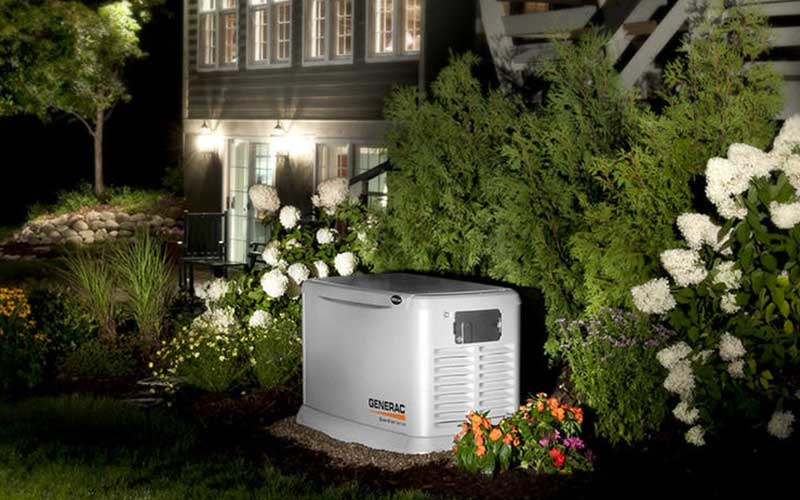
How Many BTUs Is a 24KW Generac Generator? In Depth Guide
How Many BTUs Is a 24KW Generac Generator? In Depth Guide 2023
If you are planning to buy a Generac generator, it is essential to understand its BTU (British Thermal Unit) rating.
This is especially important if you are going to use the generator for heating or cooling purposes.
In this article, we will answer the question, “How many BTUs is a 24KW Generac generator?” and provide you with a comprehensive guide on understanding BTU ratings.
Understanding BTU Ratings
Before we get into the specs of the 24KW Generac generator, let’s first define BTU rates. BTU is a unit of measurement for energy, especially heat.
It is defined as the amount of energy needed to raise the temperature of one pound of water at sea level by one degree Fahrenheit.
In layman’s terms, the greater an appliance’s BTU rating, the more heat it can create.
BTU ratings are used to assess the amount of heat that generators can produce.
This is vital whether you intend to use the generator for heating or cooling, as it will assist you in determining the proper size of the unit.

How Many BTUs Is a 24KW Generac Generator?
A 24KW Generac generator produces roughly 81,948 BTUs per hour. This grade is based on the generator’s 24 kilowatt output capacity.
It is important to remember, however, that the actual BTU value may vary depending on the model and other circumstances.
It is also worth mentioning that a generator’s BTU rating is not the only thing to consider when utilising it for heating or cooling.
Other elements like as fuel type, efficiency rating, and environmental considerations can all have an impact on the unit’s performance.
Factors That Affect BTU Ratings
As mentioned earlier, several factors can affect a generator’s BTU rating. These include:
1. Type of Fuel
The type of fuel used by a generator can significantly impact its BTU rating. For instance, natural gas and propane generators have different BTU ratings due to their different energy densities.
2. Efficiency Rating
The efficiency rating of a generator determines how much of the fuel it consumes is converted into heat. A higher efficiency rating means that more of the fuel is converted into heat, resulting in a higher BTU rating.
3. Environmental Factors
Environmental factors such as temperature, humidity, and altitude can also affect a generator’s BTU rating.
For instance, a generator’s BTU rating may decrease at higher altitudes due to lower air pressure, which affects the combustion process.
Conversion of kW to BTUs:
If you’re trying to understand how to convert kW to BTUs, you’re in the right place. Both kilowatts (kW) and British thermal units (BTUs) are units of measurement for energy.
However, they are measured in different ways and used for different purposes.
What is a Kilowatt (kW)
Kilowatt (kW) is a unit of power, used to measure the rate of energy consumption or production. It is commonly used in the context of electricity, and one kilowatt is equal to 1,000 watts. The symbol for kilowatt is “kW”.

Understanding the Relationship between kW and BTUs
Kilowatts and British thermal units are two different units of energy that can’t be directly converted to each other. Kilowatts are used to measure the rate of energy consumption, while BTUs are used to measure the amount of heat energy produced.
However, there is a relationship between kW and BTUs that can be used to convert between the two units.
Converting kW to BTUs: The Calculation
To convert kW to BTUs, you need to know the conversion factor between the two units. One kilowatt-hour (kWh) is equal to 3,412 BTUs.
This means that to convert kW to BTUs, you need to multiply the power in kilowatts by 3,412. The formula for converting kW to BTUs is as follows:
BTUs = kW x 3,412
Examples of Converting kW to BTUs
Let’s take an example to illustrate how to convert kW to BTUs using the formula. Suppose you have a 5 kW heater. To convert the power from kW to BTUs, you need to multiply 5 kW by 3,412. The result will be:
BTUs = 5 kW x 3,412 = 17,060 BTUs
So, a 5 kW heater produces 17,060 BTUs of heat energy per hour.
Why is Converting kW to BTUs Important
Converting kW to BTUs is useful in a variety of situations where the rate of energy consumption must be translated into the quantity of heat energy generated.
If you’re going to build a heating or cooling system in your home or workplace, for example, you’ll need to know how much heat or cooling energy it can generate every hour.
Depending on the system parameters, this might be measured in kW or BTUs.
Factors Affecting kW to BTUs Conversion
There are several factors that can affect the conversion of kW to BTUs. These include the efficiency of the system, the type of fuel used, the temperature and humidity levels, and the altitude of the location.
The system’s efficiency is an important aspect in determining how much energy is required to create a specific amount of heat. When compared to a less efficient system, a highly efficient system will take less energy to create the same quantity of heat.
The kind of gasoline utilised also has a considerable impact on the conversion rate.
The energy density of various fuels varies, which might alter the conversion rate. Temperature and humidity levels can also have an effect on the conversion rate since they affect the amount of energy required to increase or reduce the temperature.
Finally, the location’s height might affect the conversion rate due to changes in air pressure and temperature at higher elevations.

FAQs
Q1: What is a BTU rating?
A BTU rating is a measure of energy, specifically heat. It is defined as the amount of energy required to raise the temperature of one pound of water by one degree Fahrenheit at sea level.
Q2: Why is the BTU rating of a generator important?
The BTU rating of a generator is important if you plan to use the unit for heating or cooling purposes, as it will help you determine the appropriate size of the unit.
Q3: How does the type of fuel affect a generator’s BTU rating?
The type of fuel used by a generator can significantly impact its BTU rating. For instance, natural gas and propane generators have different BTU ratings due to their different energy densities.
Q4: How can environmental factors affect a generator’s BTU rating?
Environmental factors such as temperature, humidity, and altitude can affect a generator’s BTU rating. For instance, a generator’s BTU rating may decrease at higher altitudes due to lower air pressure, which affects the combustion process.
Q5: Can the BTU rating of a generator be improved?
Yes, the BTU rating of a generator can be improved by increasing its efficiency rating or using a more efficient fuel source. Regular maintenance and cleaning can also help improve the unit’s performance and BTU rating.
Conclusion
In summary, a 24KW Generac generator has a BTU rating of approximately 81,948 BTUs per hour. However, this rating may vary depending on the model and other factors such as the type of fuel, efficiency rating, and environmental factors.
Understanding a generator’s BTU rating is essential when using it for heating or cooling purposes, as it will help you determine the appropriate size of the unit.
- No Comments
- May 5, 2023
